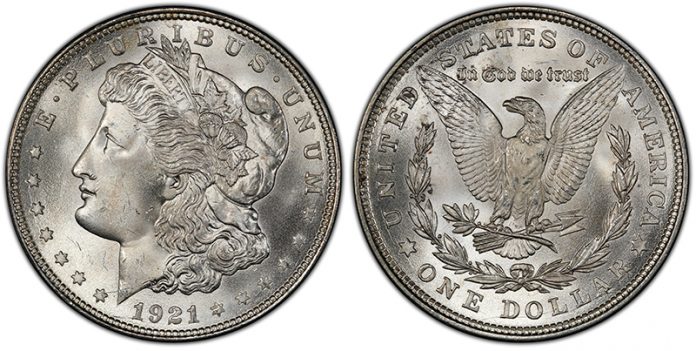
By Mike Fuljenz

New coin designs are coming this year.
First, we are likely to see new versions of the Morgan and Peace dollars in 2021 to mark the centennial year of the final Morgan dollar and first Peace dollar in 1921. In mid-2021, we will also see a change in the reverse design of the gold and silver American Eagle bullion coins.
These will engender new interest in both the old and new designs and generate new interest in coin collecting, resulting in numerous new ads posted in various media, which generates new customers. Experience has shown us over the years that about one out of six of these new buyers of bullion coins later turns into buyers of numismatic coins, strengthening the market for years.
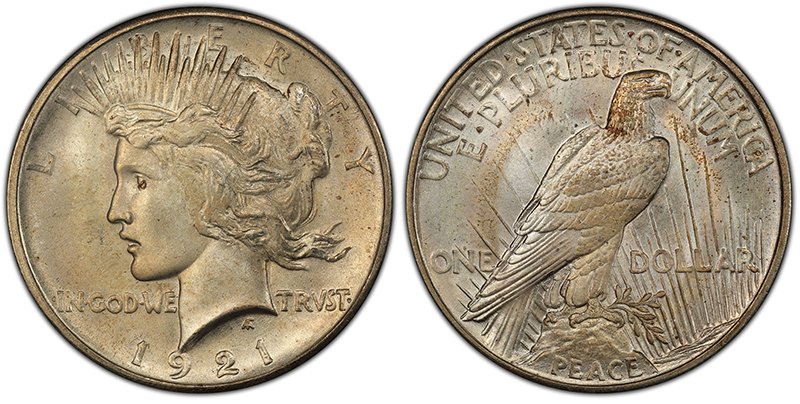
(Photo courtesy PCGS)
After 2021, we will see another series of circulating coins to be implemented between 2022 and 2030:
- Circulating quarter dollars honoring women to be issued from 2022 through 2025
- Circulating coins in multiple denominations in 2026, celebrating America’s 250th birthday
- Award medals for the 2028 Olympic Games in Los Angeles
- Silver bullion coins with the same designs as all of the quarter dollars and half dollars authorized from 2022 through 2030, in the now-standard 5-ounce size and fractional sizes.
Also, we will likely see new alloys used in forthcoming coin mintages. This will also create new interest in the collector and investor communities, since first-year issues are especially popular and their mintage totals are sometimes limited. The primary reason for these new alloys is to reduce production costs and limit future shortages. Coins under consideration for change are the copper-plated zinc Lincoln cent, copper-nickel Jefferson 5-cent coin, copper-nickel clad Roosevelt dime, and copper-nickel clad quarters. The cost savings will be greatest for the lower-denomination coins.
The U.S. Mint has come up with potential compositional alternatives that offer cost savings for most small coins, except the cent. None of the currently known possibilities would bring the cent’s cost below face value. Possibilities determined by the Mint for the 5-cent, dime and quarter dollar denominations would incorporate manganese with some copper and nickel in the alloy. Other alternative alloys include steel.
To enjoy Fuljenz’s regular Metals Market Report visit www.mikefuljenz.com.
Photos courtesy of PCGS, www.pcgs.com.









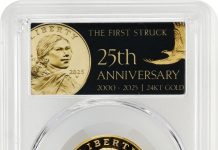

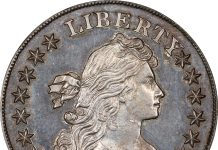


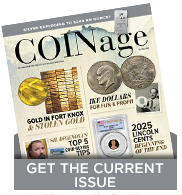
While tradition is against it (and most coin collectors as well), from a purely practical and cost standpoint, it is probably time to re-evaluate the current US regime of printing money and minting coins. Eliminate the penny and the nickel so the dime becomes the new lowest denomination and people exchanging coins round to the nearest value. Then make new $1 and $5 dollar coins. Although printing bills is still not a loss like the penny is, given how much longer coins last than bills it saves money over time. Once enough coins have been minted, stop printing $1 and $5 bills. At which point you could introduce two larger denomination bills in general circulation, say a $500 and an $1000 bill.
With all those changes, the designs for each of the coins should also be revisited (particularly as eliminating both the penny and the $5 remove Lincoln from production coinage).